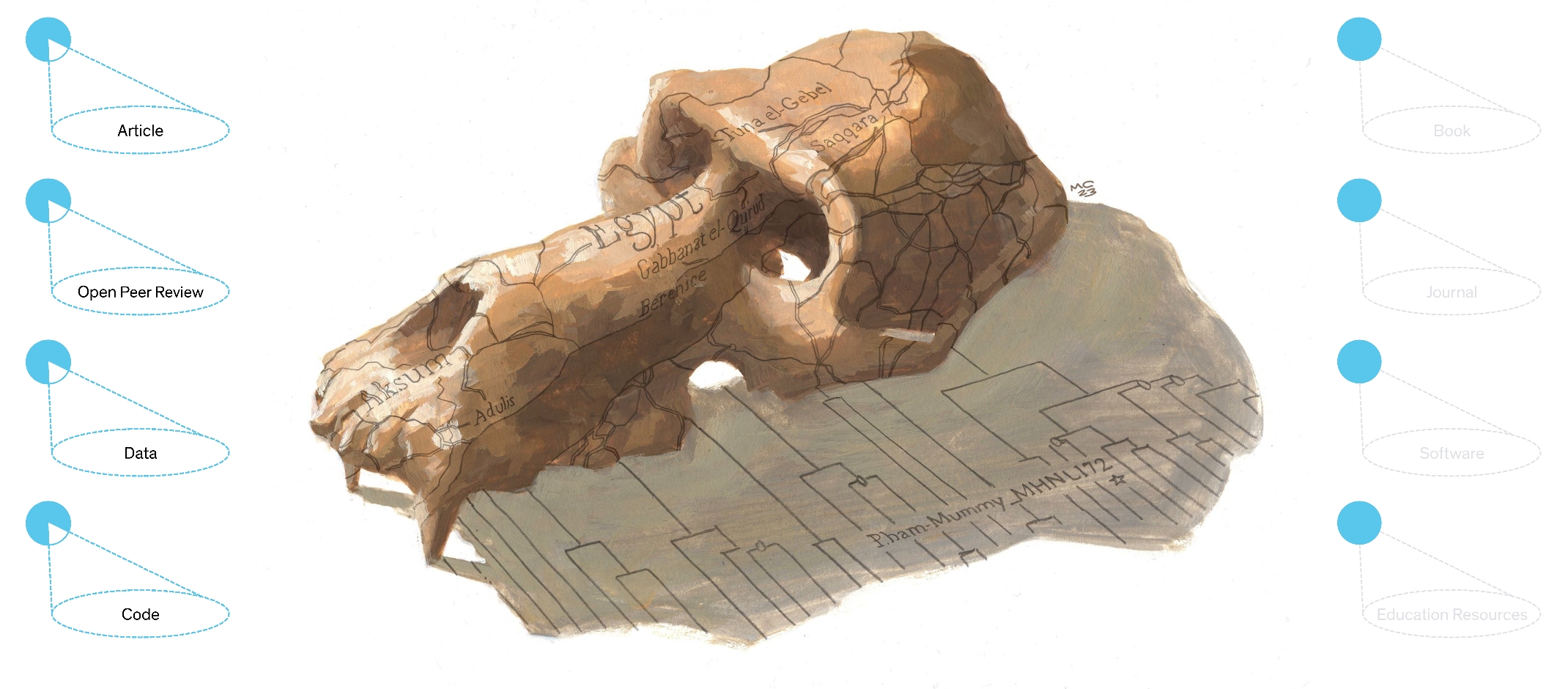On the trail of a great mystery

In Ancient Egypt, the god Thoth was embodied by a hamadryas baboon. But, to our knowledge, baboons have never existed naturally in Egypt. They were probably imported from distant regions and also held in captivity, and were mummified as votive offerings after their deaths. In an interdisciplinary project involving biologists, Egyptologists and anthropologists, Gisela Kopp pursued the question of how and from where baboons came to Egypt, using genetic analyses of baboon mummies.
The results suggest that the baboons originated from the region around present-day Eritrea, more specifically close to the location where Adulis was supposedly located, an ancient port known as a trading place for luxury goods and animals in antiquity. The Egyptological expertise in the project made it possible to link Adulis to Punt, a legendary trading region from which Egypt imported luxury goods. The study, which has been published open access with a public review process in eLife, puts forward the following hypothesis: Punt and Adulis are two different names used for the same place at different points in time.
It is the first time that ancient DNA from mummified monkeys has been analyzed, providing new insights into the interactions between humans and wild animals in antiquity. The authors have also made their sequencing data and the code for data analysis freely available.
The free scientific article "Adulis and the transshipment of baboons during classical antiquity" (doi: 10.7554/eLife.87513) and the publicly accessible review process can be found on the eLife website.
The raw sequencing data are freely accessible in the European Nucleotide Archive (ENA; project: PRJEB60261), the mitochondrial genomes in GenBank (under number OQ538075 to OQ538089).
The code used for data processing and analysis (doi: 10.17605/OSF.IO/D5GX3) is available on the OSF research platform.

